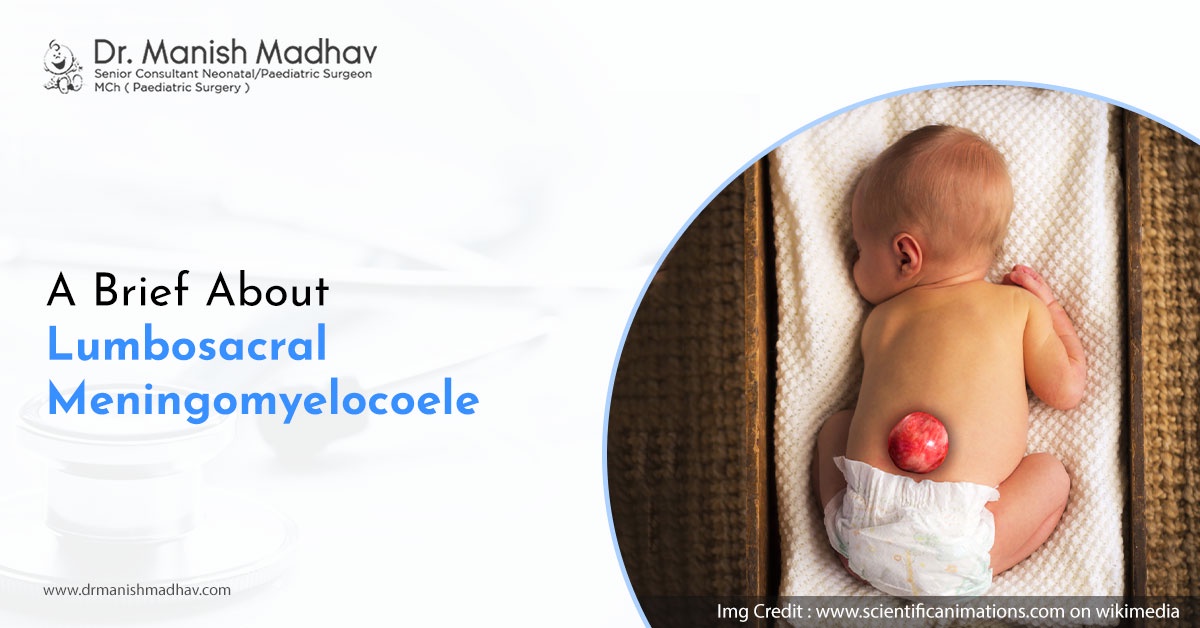Meningomyelocele is a type of neural tube defect found in newborns where the baby’s spine and spinal canal do not close before birth. It is also known as open spina bifida in medical terms.
This condition develops in a fetus generally in the first four weeks of pregnancy and is characterized by an incomplete neural tube closure and a fluid-filled sac bulging out from the baby's back.
Pediatric surgeons offering lumbosacral meningomyelocele treatment in Siliguri further explain that the bulging sac in babies born with meningomyelocele may contain parts of the spinal cord, tissues covering the spinal cord, nerves, and cerebrospinal fluid.

How Does Meningomyelocele Affect Babies?
Meningomyelocele is one of the most severe forms of spina bifida often associated with severe disabilities like weakness of the muscles, loss of bladder control, bowel control, and paralysis. If meningomyelocele occurs in the lower region of the spine then, babies suffer from less severe symptoms but if happens higher in the spine then they can experience severe disabilities.
Causes Of Meningomyelocele
While doctors are unsure of the exact causes of meningomyelocele, they believe that the condition arises because of a combination of environmental factors, genetic structuring, and nutritional deficiencies. Low levels of folic acid in an expecting mother before and during pregnancy contribute to such congenital conditions.
Risk Factors Associated With Meningomyelocele
While meningomyelocele may occur randomly in any pregnancy and cannot be prevented it is important to consider some factors that can reduce its risks. Some of the major factors to consider are:
Avoid Folic Acid Deficiency
Folate is a natural form of Vitamin B9 and plays a very crucial role in the brain development of a fetus. Every pregnant woman or those planning to conceive should have a decent dose of pre-natal vitamins to complete their deficiency of folic acid.
Family History of Neural Tube Defects
Mothers who already have delivered a baby with a neural tube defect have a 3% higher risk of having a second or another child with the same defect. However, most often it is observed that parents with no known family history of NTD have delivered babies with this defect.
Anti-seizure medications
Anti-seizure medications taken during pregnancy are likely to affect the health of the fetus and lead to a condition of Neural Tube Defect such as meningomyelocele.
Diabetes
Pregnant women with poorly controlled diabetes have a higher risk of delivering babies with neural tube defects.
Obesity
Mothers who have been obese before conception or during pregnancy carry a higher risk of delivering babies with neural tube defects like meningomyelocele.
How Is Meningomyelocele Diagnosed Before Birth?
Various lab and imaging tests help doctors detect and diagnose meningomyelocele in fetuses before birth. The most common tests performed are:
- Blood tests
- Fetal (prenatal) ultrasounds in the first and second trimester
- Amniocentesis

Specialists Who Deal With The Treatment Of Meningomyelocele
A multidisciplinary team consisting of the following doctors and specialists treat the condition of meningomyelocele in newborns:
- Neurosurgeon
- Neurologist
- Urologist
- Fetal surgeon
- Orthopaedist
- Dermatologist
- Physiotherapist
Having babies with serious medical conditions like meningomyelocele can be extremely disturbing for the parents, but with advanced lumbosacral meningomyelocele treatment in Siliguri, both have become easy and manageable.


No comments yet